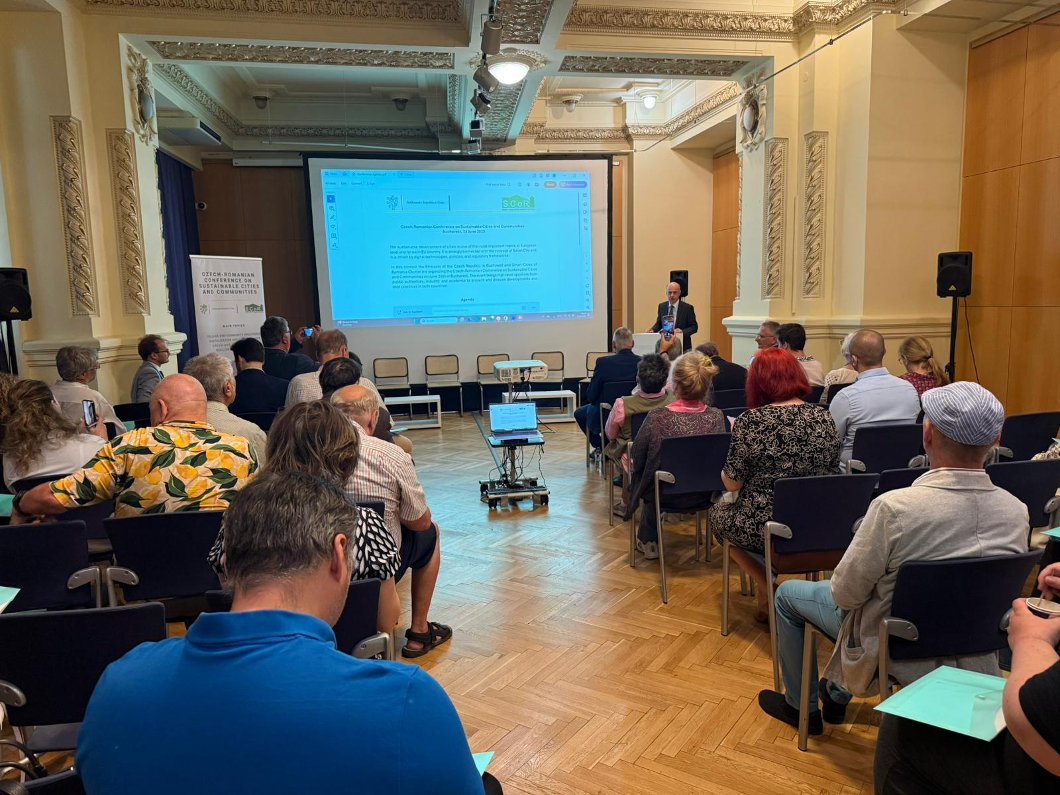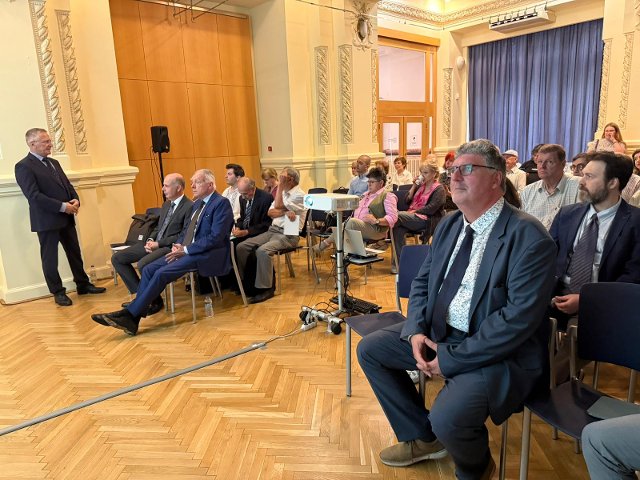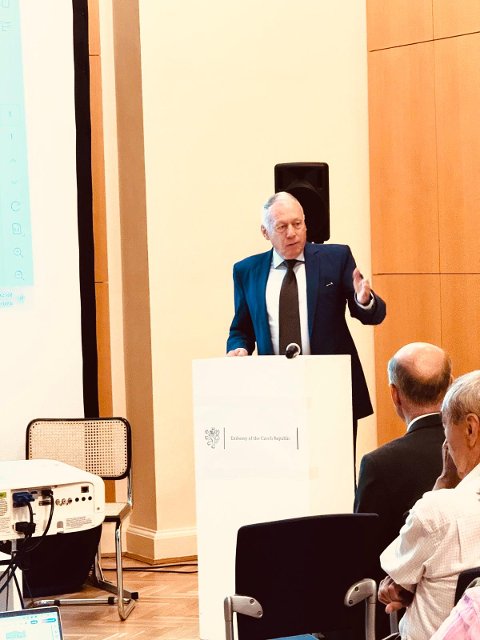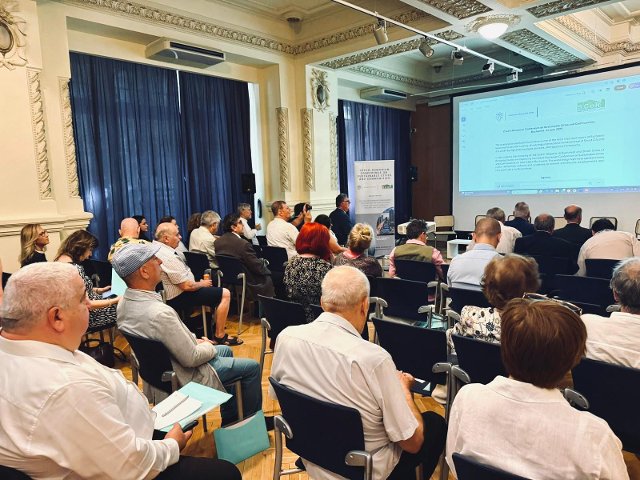
Conference on Sustainable Cities and Communities at the Czech Embassy in Bucharest
26.06.2025 / 14:38 | Aktualizováno: 11.07.2025 / 09:43
The Embassy of the Czech Republic in Bucharest, in cooperation with the Smart Cities of Romania Cluster, organized a Czech-Romanian Conference on Sustainable Cities and Communities on 24 June 2025. The event took place on the premises of the Embassy and was held in support of the global United Nations initiative “Agenda 2030” for sustainable development.
The conference, officially opened by Ambassador Martin Košatka, served as a platform for sharing experiences and examples of best practices in the field of sustainable and smart urban development, with an emphasis on technologies and Smart Cities concepts. Representing the Czech side, Professor Miroslav Svítek, a leading expert in the field of smart cities, presented current Czech activities, including specific projects from the Smart Polygon. Professor Svítek is a member of the Scientific Council of the Czech Institute of Informatics, Robotics and Cybernetics (CIIRC) and former Dean of the Faculty of Transportation Sciences at the Czech Technical University in Prague (CTU). The second Czech speaker, Viktor Beneš, representing ICT Prague, presented the outcomes of pilot projects implemented in the Czech capital.
On the Romanian side, contributions were made by experts Florin Baltaretu from the Technical University of Civil Engineering Bucharest and Marian Buric, representative of the Smart Cities of Romania Cluster. The keynote speech on sustainable development was delivered by László Borbély, State Counsellor from the Romanian Government Office.
The conference was organized in partnership with the Smart Cities of Romania Cluster (SCoR CLUSTER), a network of experts, institutions and companies committed to innovative approaches in urban development. The cluster’s mission is to foster collaboration between public administration, academia, research institutions and the private sector at both national and international levels.
The project was funded by the Ministry of Foreign Affairs as part of activities supporting the implementation of the 2030 Agenda for Sustainable Development.







